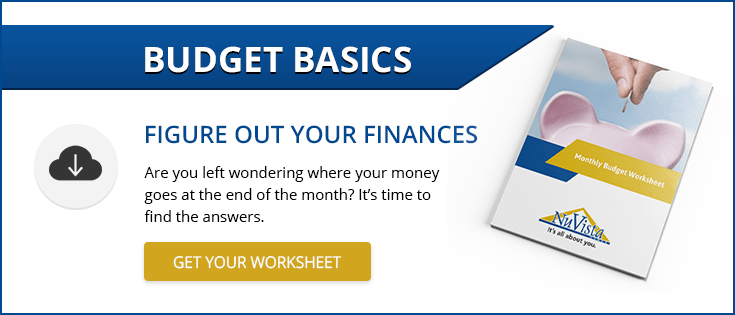 Purchasing a home is one of the largest investments you'll ever make, so it's important that you fully understand all of the various financial considerations that come along with that decision.
Purchasing a home is one of the largest investments you'll ever make, so it's important that you fully understand all of the various financial considerations that come along with that decision.
Understanding Your Mortgage
The first thing you should understand is the mortgage. There are two main types: conventional mortgages and high-ratio mortgages. You're likely already familiar with a conventional mortgage; these are the most common types of home loans and do not exceed 80 percent of the value of the home.
A high-ratio mortgage is a mortgage that's up to 95 percent of the home's value. These are more common when borrowers do not have enough to make a substantial down payment on a home. As a result, they're considered higher-risk and often require the borrower to purchase mortgage insurance.
 How to Obtain a Mortgage
How to Obtain a Mortgage
Think of where most people go to get approved for a mortgage and follow that example. Banks, mortgage brokers, trust companies, and a number of other financial institutions provide a number of different options to ensure you can finance your new home.
If you already have a bank (and as someone looking to purchase a home, you should) consider using their services. As a long-time customer, you may have built up customer loyalty that will ensure smooth sailing as you go through the process. As anyone who has purchased a home will tell you, the process can be stressful and time-consuming.
If you don't have a bank you're loyal to, consider a mortgage broker. These are companies with access to a number of different lenders that have the ability to shop around for the lowest price. While you could do the same on your own, having a professional handle this for you can help ensure you follow the mortgage laws and avoid mistakes.
You can also ask your home builder for advice. Many home builders have relationships with mortgage lenders as a result of their business and can often get more favourable rates than individuals can.
What Determines a Mortgage
The amount you have access to for a mortgage loan, the rate you receive, and other factors are usually outside of the lender's control. These are set by factors such as the market, your past credit history, your income, and other factors. Naturally, the better your credit score and the higher your income, the higher loan amounts you'll have available.
If you apply for a mortgage and find that you don't qualify for a large enough amount to purchase the home you want, work on reducing your debt and improving your credit score. While this can take time, it can affect the available funds by thousands of dollars.

Pre-Approval and Why it Matters
It's always a good idea to have your finances in place before you begin searching for a home. While you might have a rough estimate of how much you qualify for, it's better to know for sure so you can have a solid idea of your available budget before you fall in love with a home you can't afford. The same applies when you're working with a home builder; having a beautiful home built from the ground up to your specifications is wonderful, but you need to know how large of a budget you have to work with.
Pre-approval doesn't take a lot of time and, best of all, doesn't obligate you to take the loan if you don't want to. In the event you can't yet find a home that suits your present needs, the loan will be available and waiting for you when you're ready.
Purchasing a Home
When you find a home you love, make an offer as quickly as possible. In a healthy economy, homes do not stay on the market long. Moving quickly is important, and it's for this same reason that you should know how much you can spend.
Keep in mind, whether you can afford something isn't the same as how much you're capable of borrowing. Affordability is a long-term consideration, not a short-term game. If you're searching for a home, take the time to learn about the financial aspects before you make any decisions; knowing what you're getting yourself into can make all the difference between finding an affordable home and accidentally winding up over your head in debt.
Find a mortgage provider now, before you begin the search. Make sure your finances are in order before you find a home you love, and it will make the process of purchasing that home much easier!
P.S. Check out these 5 mortgage mistakes and how to avoid them. You'll thank us later.





